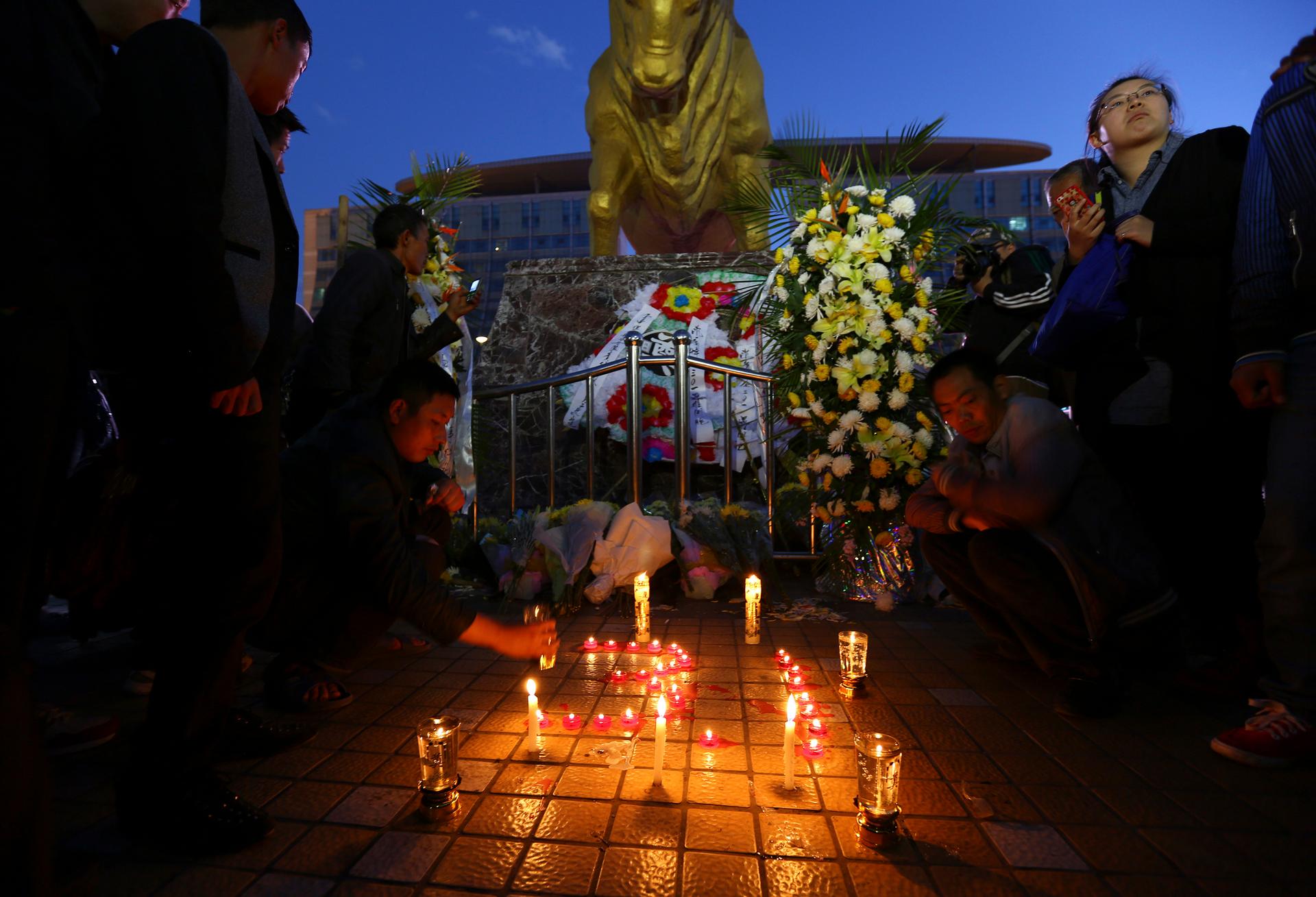A shocking knife attack in China leads to comparisons with 9/11
People light candles outside the Kunming railway station after a weekend knife attack that killed 29 people.
The details of what happened in the Kunming railway station on Saturday night are truly shocking.
A group of eight to 10 assailants burst into the station and proceeded to randomly hack and stab dozens of bystanders. Within a matter of minutes, this major transportation hub for all of southwestern China was transformed into a bloody scene of carnage.
When it was over, more than 30 people were dead — including four of the attackers, who were shot by police — and more than 140 people were injured.
Not much is known about the suspects, though Chinese authorities say they apprehended the last of the surviving attackers on Monday in Kunming.
China's official news agency named Abdurehim Kurban as the ringleader of the attack. It was not clear if the individual was dead, in police custody or at large. But the man's name suggests a connection with China's far northwestern Xinjiang region, home of China's ethnic minority Uighur population.
Chinese officials were clear about who they believed was behind the incident. They said “separatists” from Xinjiang carried out the attack. An editorial in Xinhua called the incident “China's 9-11.” Other voices in the official news media called for a harsh response.
As further evidence of a link with Xinjiang, Chinese officials say they discovered insignia and flags of “East Turkestan,” the name used by many Uighurs to refer to their historical homeland in the far northwest, near China's border with Central Asia.
According to the BBC, China's security chief, Meng Jianzhu vowed "all-out efforts" to "severely punish terrorists" responsible for the deadly attack.
On social media sites and in the state-run media, some Chinese have expressed frustration with the way the Kunming attack has been reported in the western news media, saying that this is no time to be asking questions about Chinese policy in Xinjiang. They also wonder why western journalists and experts appear hesitant to use the label terrorism, or put the word in quotes, after such a shockingly violent attack against innocents.
“But there has to be hesitancy in the west, because of the way the Chinese government has thrown the word 'terrorist' around to describe people like the Dalai Lama,” says history professor Jeffrey Wasserstrom at the University of California at Irvine. “There is just bound to be some skepticism, some wanting to wait and see.”
It's little surprise that such a horrific attack has sparked an intense public reaction in China, Wasserstrom says. But there are also legitimate concerns about how the Chinese government is going to respond, especially in the already tense region of Xinjiang.
“There's been a whole cycle of events that have led the [Chinese] government to say, 'this proves that security and stability are all-important in the country.' And they have made that their mantra.
“This will contribute to it in a really dramatic way,” Wasserstrom says.
If Saturday's attack does turn out to be the work of extremists from Xinjiang, it would represent a dramatic escalation of a long-simmering political dispute in one China's most tense regions.
Over the past year, about 100 people have died in violent clashes in Xinjiang, typically between local Uighurs and Chinese security forces. But an attack on this scale, thousands of miles away from Xinjiang, with this level of planning, would be unprecedented.
“In the past, the attacks inside Xinjiang have been rather small-scale and directed at state institutions like post offices, police stations and border checkpoints,” says Dru Gladney, an expert on Xinjiang at Pomona College in Claremont, California. “This is the most violent of a civilian-oriented attack that we've seen.”
Gladney also cautioned against jumping to conclusions about who was behind the Kunming attack. But he said if it does turn out to be the work of Uighur extremists, “it really suggests that it is a national problem for China, and not just a Xinjiang problem.”
The story you just read is available to read for free because thousands of listeners and readers like you generously support our nonprofit newsroom. Every day, the reporters and producers at The World are hard at work bringing you human-centered news from across the globe. But we can’t do it without you: We need your support to ensure we can continue this work for another year.
When you make a gift of $10 or more a month, we’ll invite you to a virtual behind-the-scenes tour of our newsroom to thank you for being with The World.
